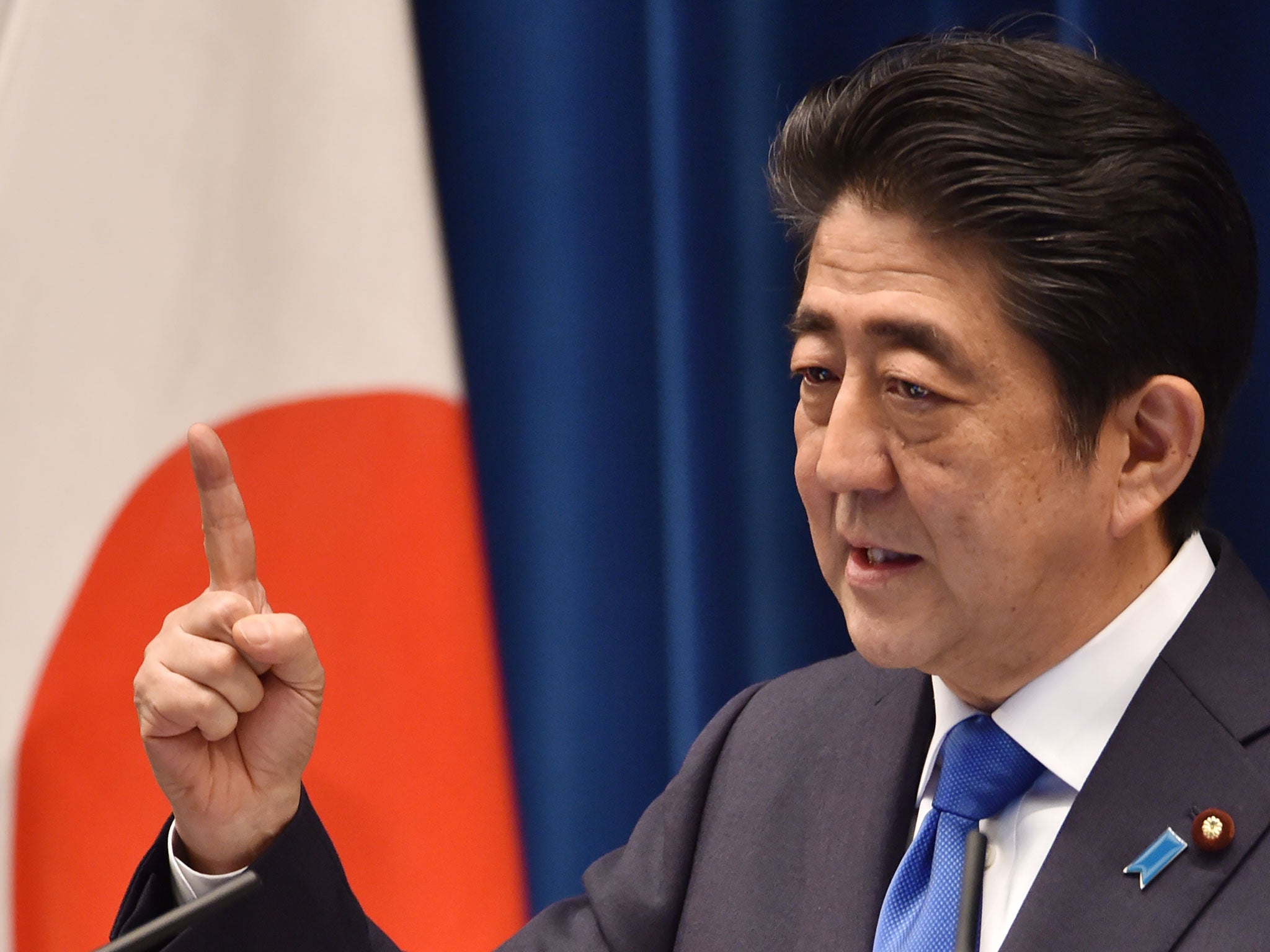Abe delays Japan’s sales tax hike until late in 2019
Abe vows reform, stimulus to achieve strong economic growth

Prime Minister Shinzo Abe said he’ll delay an increase in Japan’s sales tax until 2019, a move that may help support consumer spending while complicating the government’s efforts to tame the world’s largest debt burden.
The decision marks an about-face for Abe, who had previously said his policies would make the economy strong enough to withstand an increase in the consumption tax. He had repeatedly said that only an economic shock on the scale of the Lehman Brothers collapse or a major earthquake would prompt a delay.
“Japan will proceed with structural reforms and mobilize fiscal policy to achieve strong growth,” Abe told lawmakers from his ruling Liberal Democratic Party on Wednesday. “I want to fulfill my responsibility by speeding up Abenomics even more. In that context, I decided to postpone the increase in the sales tax to 10 per cent by two and a half years.”
Abe also vowed to win the upper house election, which is expected next month. He will give more details about postponing the tax in a press conference at 6 pm in Tokyo, where he may also outline plans for a new economic stimulus package.
Election Strategy
The tax hike to 10 per cent from 8 per cent, previously set to take effect in April 2017, will be pushed back to October 2019. While putting off the increase in the unpopular levy may improve Abe’s prospects in the upper house election, the decision will fan doubts over the government’s ability to rein in a debt burden set to reach almost two and a half times the size of the economy.
Postponing the hike also will remove a source of funding for ballooning social security costs in one of the world’s most rapidly aging countries.
“Even though many people wanted the postponement, there were a lot of voices against it as well,” said Jun Okumura, a visiting scholar at the Meiji Institute for Global Affairs. “And people who were for the postponement would also realize that Abe was eating his words by deciding to postpone it.”
Abe laid the groundwork for the delay at a Group of Seven summit in Japan last week. In a presentation to his fellow G-7 leaders, Abe made the case that the major economies needed to act to avert the danger of a major economic crisis. The G-7 leaders rejected his efforts to have language warning of the risk of a crisis included in the final communique of the meeting.
Public Opposition
Abe had inherited the plan for a two-stage tax rise from the previous government. The economy fell into recession when the tax was raised in 2014 in the first phase of the plan. The second increase initially was set for October 2015, before being delayed by Abe’s government. A poll published by the Nikkei newspaper on Monday showed that nearly two-thirds of respondents opposed the hike.
“For Japan, the biggest problem is that private consumption hasn’t risen,” Finance Minister Taro Aso, who had previously opposed a delay, said Tuesday. “That’s 60 percent of GDP that isn’t increasing, and so to deal with that, now isn’t the time to raise the sales tax again.”
Business news: In pictures
Show all 13Aso added that Japan still must fix its finances and that there has been no change to the government’s target of achieving a primary balance surplus in the fiscal year starting April 2020. After being reported as saying last weekend that an election must also be called in the lower house to consult the people if the tax increase was delayed, Aso said Tuesday that election timing was entirely up to the prime minister.
Abe’s government is set to propose a stimulus package of 5-10 trillion yen ($45-$90 billion) in a special legislative session after the July election, the Nikkei newspaper reported Saturday.
© 2016 Bloomberg L.P
Subscribe to Independent Premium to bookmark this article
Want to bookmark your favourite articles and stories to read or reference later? Start your Independent Premium subscription today.

Join our commenting forum
Join thought-provoking conversations, follow other Independent readers and see their replies